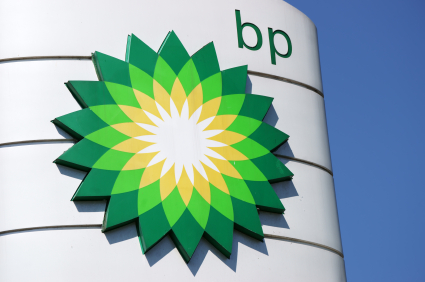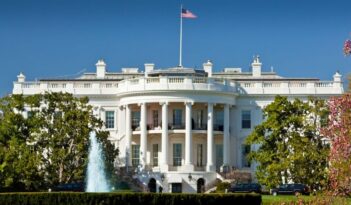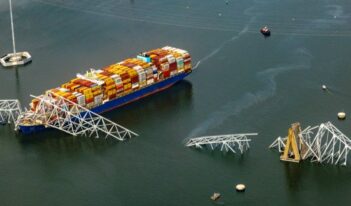
Agency points to oil company’s “lack of business integrity” in temporary suspension order.
In response to the 2010 Deepwater Horizon blowout in the Gulf of Mexico, the U.S. Environmental Protection Agency (EPA) has decided to temporarily ban BP, PLC and its affiliates from bidding on contracts with the United States government, one of its biggest business partners.
The EPA’s decision, while permitting BP to retain existing contracts, would prevent the oil company from engaging in any new agreements until the ban is lifted. BP, the largest supplier of oil to the Pentagon in 2011, currently enjoys contracts worth more than $2 billion that are set to expire in the next two years, according to a spokesperson for the Defense Logistics Agency, which purchases most of the oil for the United States Department of Defense. Under the temporary suspension, BP would be unable to sell fuel to the Pentagon or lease additional offshore land for drilling activities.
According to its press release, the EPA has determined sanctions are warranted because of BP’s “lack of business integrity,” pointing to BP actions during and after the Deepwater Horizon disaster. The EPA called the oil spill, which killed eleven people and resulted in extensive ecological damage, “the largest environmental disaster in U.S. history.”
The EPA further cited the fourteen criminal charges to which BP agreed to plead guilty on November 15, 2012, as raising a “responsibility question” warranting the suspension. The EPA contends that suspensions are a “standard practice,” implemented “to ensure the integrity of Federal programs by conducting business only with responsible individuals or companies.”
BP, in its response to the ban, emphasized that the suspension would have no impact on its existing contracts, including leases it currently holds in the Gulf of Mexico. The oil giant also pointed toward ongoing negotiations with both the EPA and the Department of Justice, and indicated its hope that the ban will be lifted shortly. BP outlined the numerous safety enhancements it has made in the wake of the catastrophe, as well as the billions spent in cleanup and compensation costs so far.
BP also noted that the U.S. government has already been awarded more than 50 new leases in the Gulf of Mexico since the disaster, and that the company remains the “largest investor and deepwater leaseholder” in the Gulf as well. The oil company further points to its significant investment in the United States, as it “supports over a quarter of a million American jobs.”
Analysts differ on the economic impact—if any—such a ban will have on the oil giant. Ed Hirs, professor of energy economics at the University of Houston, called the suspension “window dressing” for the EPA, indicating that any impact of such a ban on BP would be minimal due to the immense value of the existing contracts.
However, others have applauded the action as setting a strong precedent, communicating that the U.S. government will hold large companies to higher standards. Scott Amey, general counsel for the Project on Government Oversight, suggested that such a measure sends a powerful message that BP is “paying the price for its inaction,” and that it signals that all federal contractors will be subject to increased scrutiny. Amey applauds the EPA for dispelling the belief that large companies such as BP are “too big to suspend or debar.”
The United States plays a major role in BP’s global business. In the third quarter, U.S. operations brought in over 30% of the oil company’s before-tax profits. Just two weeks before the EPA announced the ban, BP Chief Financial Officer Brian Gilvary suggested that, if the EPA were to impose a suspension, BP would be forced to restructure all of its U.S. operations.
In response to the suspension, BP declined to engage in bidding during a Gulf of Mexico lease sale held hours after the ban was announced late last month. Despite BP’s non-participation, conservation groups like Oceana point to the lease sale, held in the immediate wake of the EPA ban, as evidence that the Obama administration is “missing the lesson of the Deepwater Horizon disaster”—that the practice of offshore drilling is “inherently…dangerous and needs to be phased out.”
The EPA made no indication of how long the ban would last, stating only that the moratorium would remain in place until BP demonstrated its ability to comply with federal business standards. Government officials have indicated that similar suspensions typically remain in place for no more than eighteen months, but also suggested that the ban could endure until the end of civil proceedings related to the disaster.



